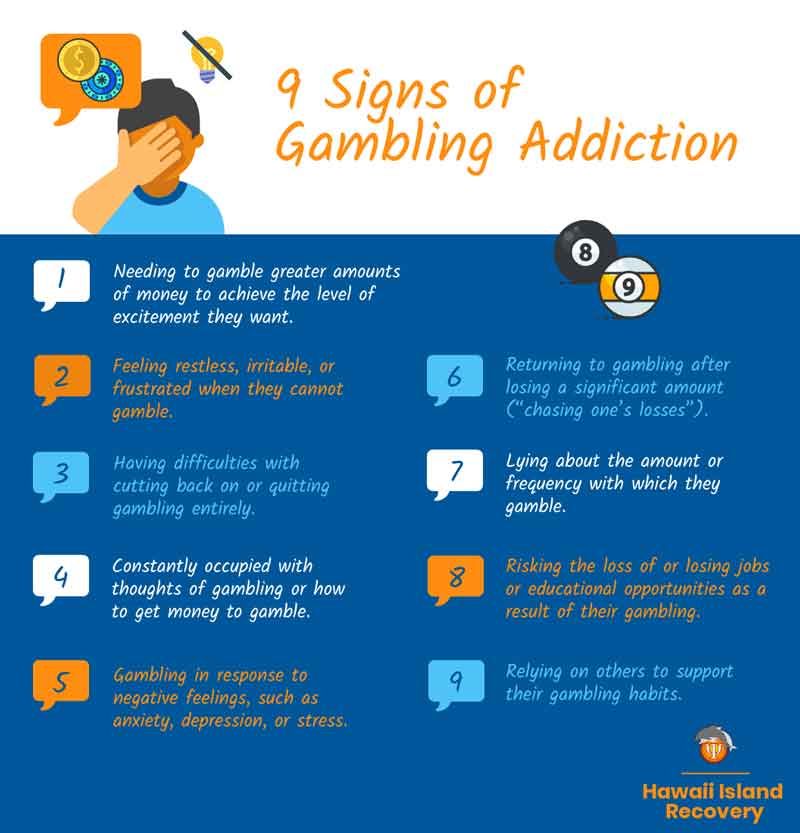Technological advancements have made it easier than ever for people to engage in online gambling. While this form of entertainment can be fun and even profitable for some, it can also lead to addiction for others. It is essential to recognize the signs and symptoms of gambling addiction to help those who may be struggling.
What is Gambling Addiction?
Gambling addiction, also known as compulsive gambling, is a behavioral disorder characterized by the inability to control one’s urge to gamble despite negative consequences. It is considered a type of impulse-control disorder and can have serious ramifications on a person’s mental, emotional, and financial well-being.
Signs of Gambling Addiction
There are several signs that may indicate a person is struggling with gambling addiction. These include:
Preoccupation with gambling: Constantly thinking about gambling or planning the next bet.
Increasing the frequency and amount of bets: Needing to gamble more money or more often to achieve the same level of excitement.
Unease when trying to stop gambling: Feeling anxious, irritable, or restless when attempting to cut back or stop gambling.
Lying about gambling activities: Deceiving loved ones or friends about the extent of one’s gambling.
Financial problems: Experiencing financial hardship as a result of gambling losses.
Neglecting responsibilities: Failing to fulfill obligations at work, school, or home due to gambling.
Chasing losses: Continuously gambling in an attempt to recoup previous losses.
Symptoms of Gambling Addiction
In addition to the signs mentioned above, there are specific symptoms that may accompany gambling addiction. These include:
Depression and anxiety: Gambling addiction can lead to mood disorders such as depression and anxiety.
Isolation: Withdrawing from social activities or relationships to spend more time gambling.
Physical health issues: Insomnia, headaches, and digestive problems may arise from the stress of gambling addiction.
Legal problems: Engaging in illegal activities to finance gambling or as a result of gambling debts.
Substance abuse: Using drugs or alcohol as a coping mechanism for the negative effects of gambling addiction.
Seeking Help for Gambling Addiction
If you or someone you know is exhibiting signs or symptoms of gambling addiction, it is crucial to seek help. Treatment options include therapy, support groups, and medication to address any underlying mental health issues. It is essential to address gambling addiction as soon as possible to prevent further damage to one’s life and relationships.
Conclusion
Recognizing the signs and symptoms of gambling addiction is the first step in getting help for those who may be struggling with this disorder. By being aware of the warning signs and seeking treatment early, individuals can take control of their addiction and work towards recovery. Remember, there is help available for those who are ready to make a change.
Don’t hesitate to reach out to a professional if you or someone you know is in need of support.
